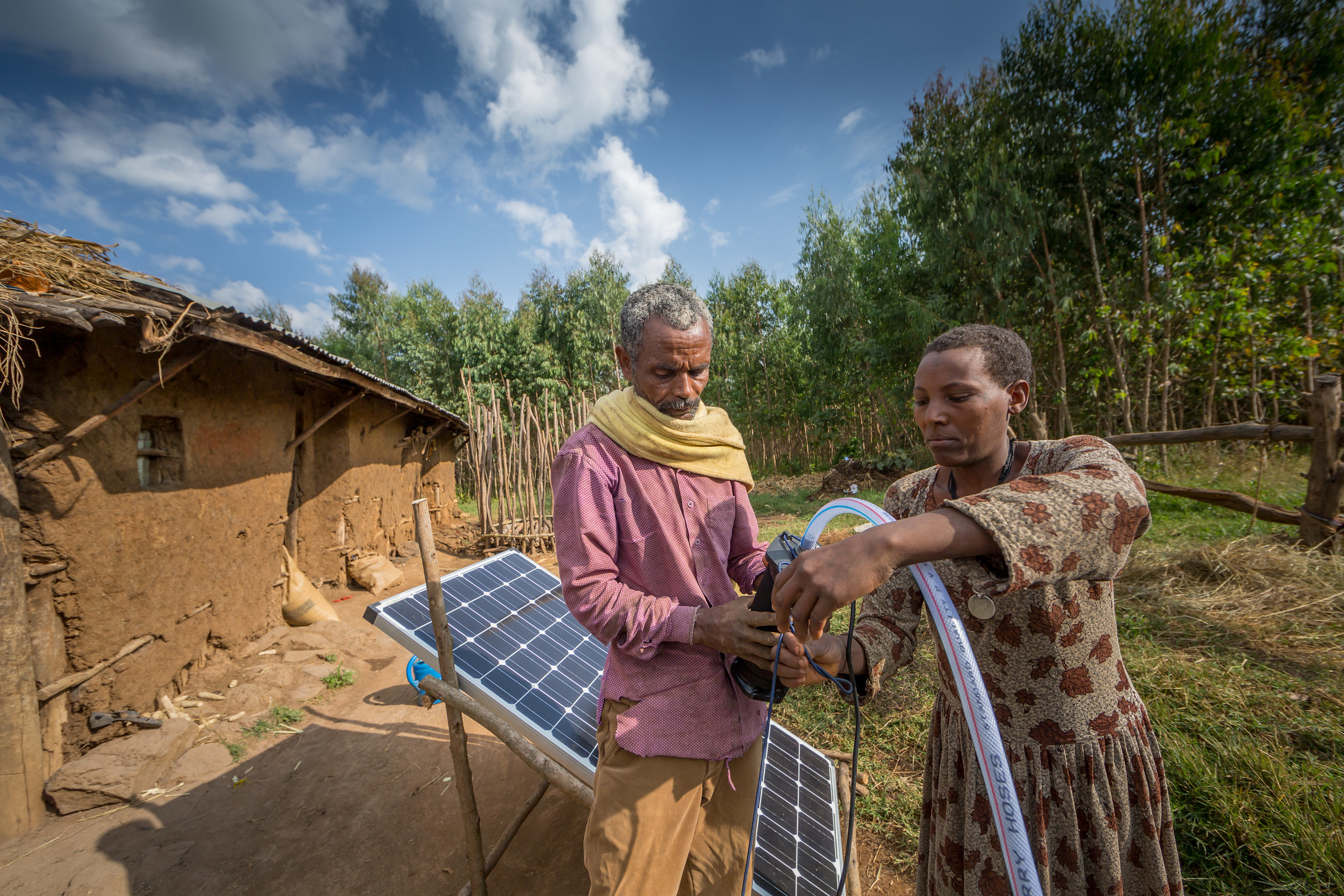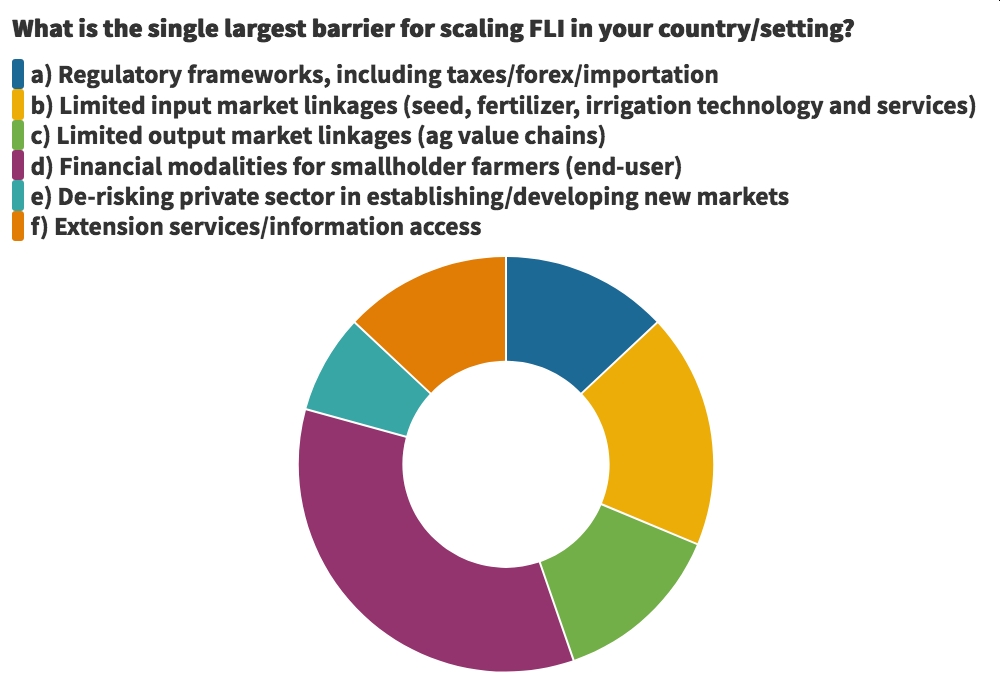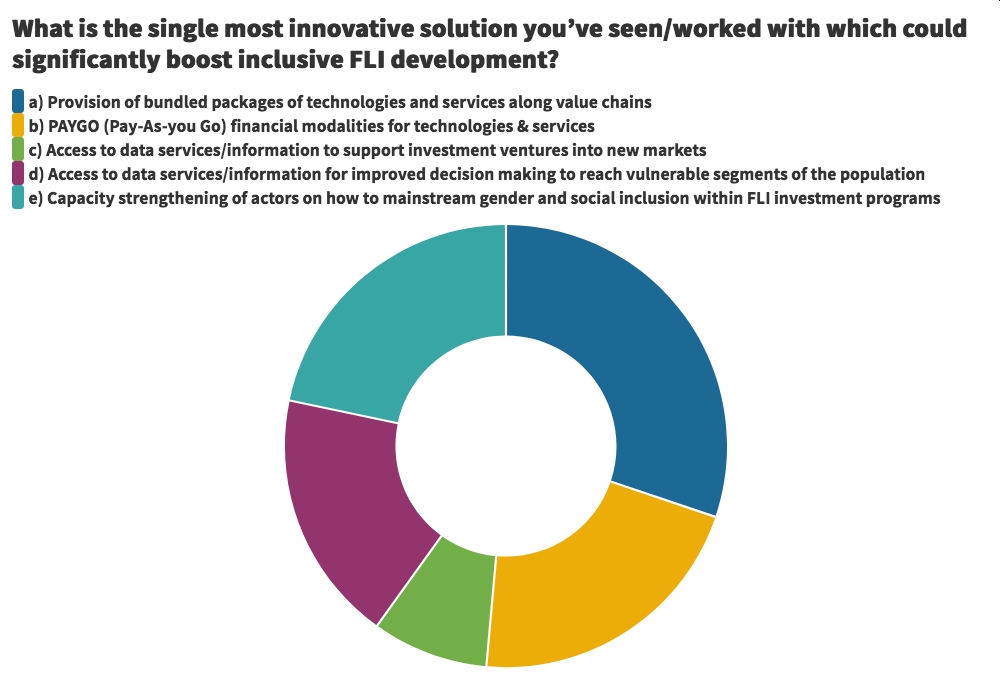
Smallholder farmers in the Global South are expanding land under irrigation by taking advantage of cheaper and more accessible technologies, including solar-powered pumps, to independently access groundwater and surface water resources. This so-called farmer-led irrigation (FLI) has the potential to underpin the livelihoods of millions, increase food and water security, enhance resilience to climate change and promote economic development.
It makes sense to encourage FLI, to capitalize on these benefits, but how can we do so inclusively and sustainably? There are many interlinked issues we need to consider, including how to: expand farmer access to appropriate financial mechanisms; make energy costs affordable; minimize potential environmental impacts; and ensure no one is left behind.
The International Water Management Institute (IWMI), in collaboration with the World Bank, Daugherty Water for Food Global Institute (DWFI) and the Global Water Partnership launched an interactive webinar series to stimulate debate on these issues. The first meeting, held in June, brought together more than 490 participants from 66 countries. The speakers concluded that to successfully scale up FLI we must: acknowledge the phenomenon in policies; develop it sustainably and inclusively; and create value chains that connect farmers with other players in the industry.
In her opening remarks, Jennifer Sara, Global Director for the World Bank Group’s Water Global Practice, said the World Bank had so far incorporated FLI in its financial support for programs in Sahel, Cameroon, Uganda and Tanzania, and the movement was spreading globally. “Working together, we believe we can create opportunities for positive change for the lives and livelihoods of smallholder farmers globally,” she said.
Mark Smith, IWMI’s Deputy Director, provided some context, explaining that IWMI had worked on FLI for the past ten to 15 years. Early work in the field had been spearheaded by the AgWater Solutions project, he explained, supported by the Bill and Melinda Gates Foundation between 2008 and 2012. “Having built on that foundation work through partnerships, other projects and the ongoing ILSSI [Feed the Future Innovation Lab for Small-Scale Irrigation at Texas A&M University] program, we recognize that now is a critical moment to accelerate and spur the scaling of farmer-led irrigation through targeted investments and partnerships,” he said.
Taking a holistic view
“To reach scale, we need to take a holistic view,” said Regassa Namara, Senior Water Economist with the World Bank Water Global Practice. “We should acknowledge FLI in irrigation and drainage policies, be pro-active in addressing gender norms, resolve conflicts on land and water resources, ensure sustainable use of these resources, and connect farmers to markets.”
Current systemic barriers to FLI are often context specific. Thai Thi Minh, Senior Researcher in up-scaling innovations at IWMI, said we need to identify partnerships and investments across the food system that are appropriate for the situation and country concerned. This is important for ensuring we increase capacity to adapt to dynamics such as climate change, financial crises and the COVID-19 pandemic.
A shift of mindset is also needed to change perspectives around regulatory frameworks; far from being encouraged, FLI is sometimes frowned upon. Philip Woodhouse, Professor of Environment and Development at the University of Manchester said removing barriers would require authorities to consider FLI as an urban as well as rural issue, recognize small-scale irrigators as market-oriented producers, and rethink the relationship between large- and small-scale irrigation.
Participants were asked to choose what the single largest barrier for scaling FLI was in their respective countries. While the majority (35%) cited finance for smallholders, many (18%) also considered limited input market linkages (such as seed, fertilizer, irrigation technology and services) as important. Participants suggested mechanisms to overcome barriers to FLI, including solar technology, incubation centers for entrepreneurs and greater use of space-based technologies. These rich contributions are being analyzed and will nourish further thinking on how to scale up FLI.

Encourage entrepreneurship, inclusion and innovation
Nicholas Brozovic, Global Director of Policy with DWFI, said we need to examine appropriate business models and financial approaches to enhance inclusivity in efforts to scale up FLI. Understanding and strengthening the irrigation supply and services ecosystem, which includes financial organizations and input vendors is key. Meanwhile Samir Ibrahim, CEO of Sunculture, said balancing public- and private-sector roles in investing and providing suitable financial mechanisms are important, so farmers can access technologies and suppliers can strengthen their businesses.
Examination of FLI through a gender lens raised issues around social inclusivity. Nicole Lefore, Director of ILSSI explained that a greater understanding is needed of where in the irrigated value chain women might choose to invest – if at all. The audience learned about a social enterprise in Zambia working with companies to develop e-wallets, to enable women’s groups to manage payments for solar pumps. “Their message is that finance solutions alone are not enough to convince women to invest, and to be able to do so profitably,” warned Lefore.
When asked to identify, from six options, the single most innovative solution they had seen or worked with, 30% of the audience cited the provision of bundled packages of technologies and services along value chains, confirming the need for a robust FLI ecosystem. Capacity strengthening around mainstreaming gender and social inclusion drew 22% of the vote, with pay-as-you-go financing for technologies and services a close third at 21%. Participants’ ideas for triggering large-scale change around FLI encompassed: sharing knowledge; finance; understanding markets better; and involving local governments and institutions.
Summarizing the webinar, moderator Molly Nance of DWFI remarked on the array of experience and innovation available to tap into to help drive FLI forward. “We can create win-wins for business and farmers in an equitable way by strengthening partnerships and investment, understanding user needs, building upon our experience and continuing to adapt as we learn to support the scaling of farmer-led irrigation development,” she said.
The second webinar, taking place on July 09th 2020, will discuss ways to scale FLI sustainably, focusing on: How do we ensure water security to support economic development and safe water access, taking into account all water needs? The webinar will take a systems approach, and consider incentives and approaches to sustainable water governance. The partners will analyze key lessons and recommendations from both webinars and share them in the future. Sign up here.


